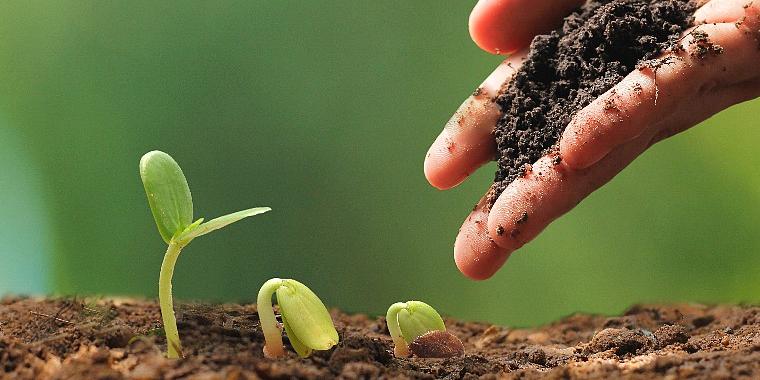The use of the term “agroecology” has gone beyond the scientific niches, where only specialists could really understand what it meant. It is now part of everyday language, where it evokes “an evolution of agriculture that is considered positive: an evolution that carries the hope of breaking with the negative consequences of contemporary agriculture” (DORE, 2019). On March 8, 2011, the report “Agroecology and the Right to Food” was presented to the UN Human Rights Council by Olivier De Schutter, UN Special Rapporteur on the Right to Food. It “calls for a fundamental shift towards agroecology as a means to increase food production and reduce rural poverty” (DE SCHUTTER, 2010). This model is thought to be the best way to face the food, ecological and energy crises that affect the world today and whose effects seem to intensify every year (ROBIN, 2014).
Massive deforestation, standardization of animal and plant species, weakening of ecosystems… The impact of intensive agriculture on the environment is brought to the attention of citizens through whistleblowers and environmental organizations. The crisis of this model, which was generalized in the 20th century, is there. The limits of the sustainability of this agriculture are more and more perceptible every day. The intensive use of phytosanitary products also has a considerable impact on ecosystems (LASBLEIZ).
So, when Bruno le Maire, French Minister of Agriculture, Food, Fisheries, Rural Affairs and Land Management, says in 2011: “let’s not make the French believe that we can grow apples, pears or fruits without any pesticides: it has always existed and it will continue to exist, because otherwise you will not produce enough products and then you will have worms, you will have other risks of food poisoning related to the absence of use of pesticides” (LE MAIRE), before adding “the major risk is to weaken French agriculture, to decrease the French production” (LE MAIRE), would this be the case? Could agroecology be “profitable”?
Yes, according to a study by Alice Gremillet and Julien Fosse, which sifts through the scientific literature and modeling of twenty-three agro-ecological reference systems. Organic agriculture in particular appears to be the most efficient from an economic and environmental point of view today (GREMILLET, 2020). The study concludes, however, with the expression of a necessary “evolution of practices at the farm level [which] will have to be extended by the evolution of consumers’ food practices, in order to ensure the transition of our food system towards sustainability, in a global way” (GREMILLET, 2020).
But what is agroecology in concrete terms? How to face these problems, how to avoid them? For Lasbleiz (2015), “Agroecology can be defined as an interdisciplinary scientific approach that questions the agronomic works that were decisive in the establishment of productivist agriculture. Unlike the intensive agriculture model that relies primarily on agronomic science, agroecology additionally draws on social science and ecology.” (LASBLEIZ, 2015). According to Altieri, one of the pioneers of this model, the agroecological approach has three main dimensions. First, the technical dimension consists of applying the principles of ecology to agriculture with some attention paid to the idea of the “agroecosystem” with which the farmer adapts his work. The socio-economic and cultural dimension of agroecology aims at the transformation of the economic environment of agricultural production with a new relationship to nature. Finally, the socio-political dimension of agroecology is intended to be based on “access to and the correct use of nature to raise the standard of living within social systems” with a view to correcting the inequalities caused by conventional agriculture ( DESERTIFICATION WORKING GROUP, 2013).
In view of the crisis that agriculture and the world in general are going through, agroecology seems to offer new perspectives. Given the potential offered by this new model, joining Olivier De Schutter in his call for a fundamental shift in favor of agroecology and advocating that elected officials integrate the concept into their community and national policies for tomorrow’s agriculture, seems to be the path to take (LASBLEIZ, 2015).
REFERENCES :
DE SCHUTTER O. (2010). Report submitted by the Special Rapporteur on the right to food. UN General Assembly. http://www.srfood.org/images/stories/pdf/officialreports/20110308_a-hrc-16-49_agroecology_en.pdf
DESERTIFICATION WORKING GROUP. (2013). Agroecology, a transition to sustainable living and development, p. 13
DORE, T., BELLON, S. (2019). The worlds of agroecology. Enjeux Scientifiques. Versailles, Quae.
GREMILLET, A, FOSSE J. (2020). The economic and environmental performance of agroecology. France Stratégie.
LASBLEIZ, R. (2015). Agroecology : Including agriculture in the transition. For Solidarity.
ROBIN, M-M. (2014). The harvests of the future. Paris, La Découverte.

